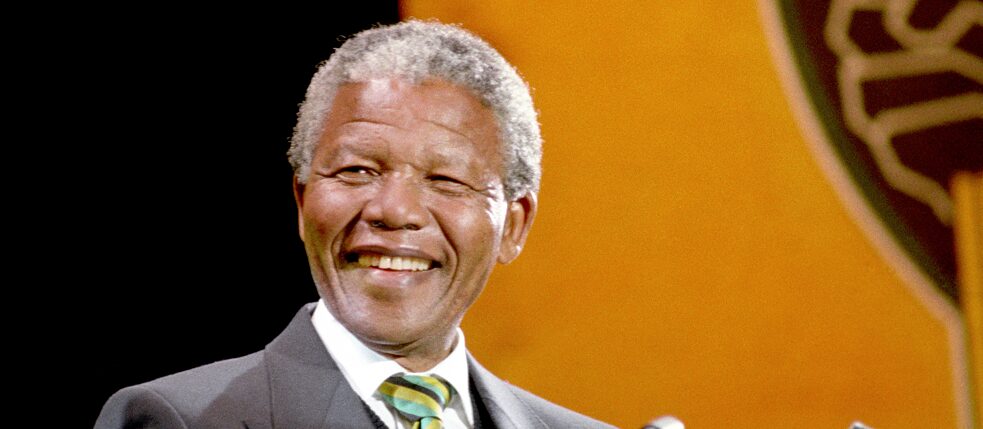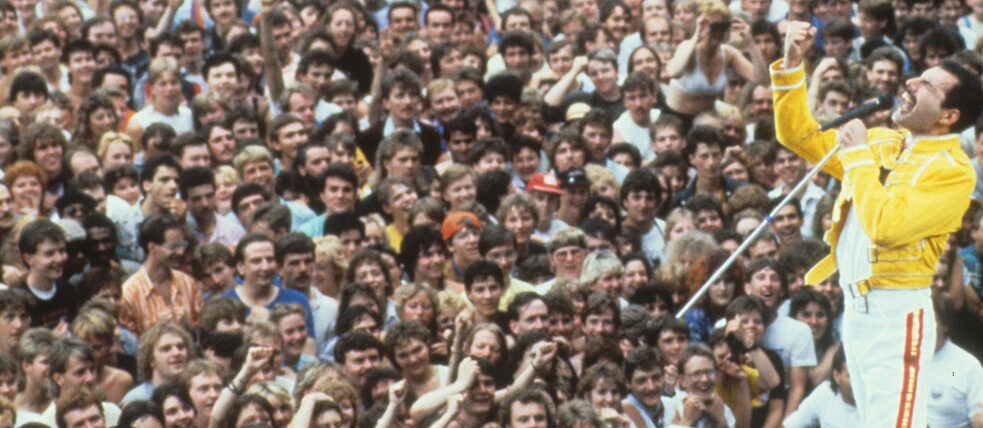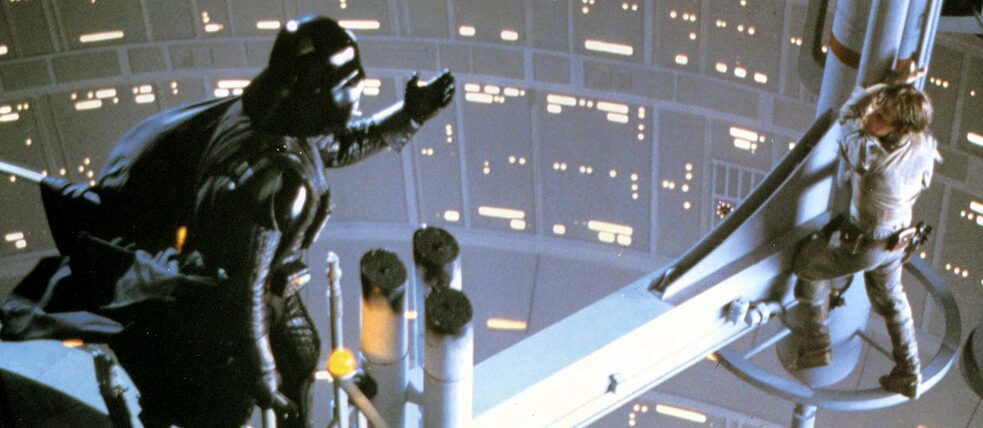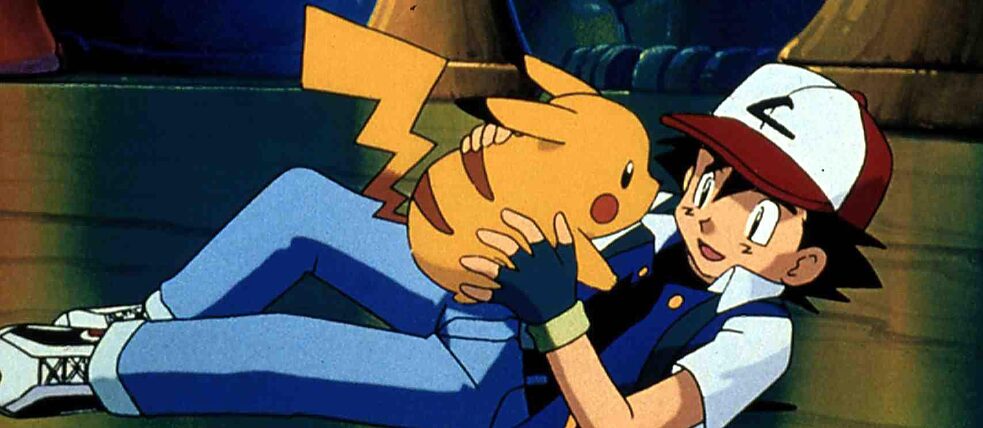False Memory
The Mandela Effect

Whether it is a case of believing someone has long since died, although he or she is still in fact enjoying the best of health, or singing song lyrics with the wrong words – when many people collectively remember things falsely, we speak of the Mandela effect. It could never happen to you, right? A look at our examples might prove you wrong.
By Hinnerk Köhn
“What? He’s still alive?” This sentence is heard more and more often these days, be it at a family celebration or at the pub. In reply, you simply nod your head a few times and nonchalantly take a sip of your thin coffee. It’s becoming more and more common for someone to recall an event that did not actually happen the way they remember it. These are, in fact, false memories, but they do not necessarily only belong to an individual. Whole crowds can also collectively remember things incorrectly – this phenomenon goes by the name of the Mandela effect.
It is named after the fact that many people thought that Nelson Mandela had already died in prison. Which is not true. Mandela was released from prison in 1990 and was President of South Africa from 1994 to 1999, until he died of pneumonia on December 5, 2013, with close family present. Shrewd readers may have noticed that there is a stretch of 23 years between the assumed date of death and the real date of death. When the news of Mandela’s death went through the media, many people were shocked – they even thought they remembered seeing the footage of his funeral on television.
The countless states of America
Even if it sounds incredible, it is a widespread phenomenon that so many people incorrectly remember experiences in a common way. There are examples of this from every country and culture. Whether music, film or public figures – nothing is safe from the Mandela effect.
Take the great ballad “We Are The Champions” by the rock opera band Queen, for example. Everyone knows the text, can sing along or bellow it out, whether at a soccer game or the pub. And how we look forward to the end of the song when it moves into its crescendo, we stand arm in arm next to each other and get ready for the last line – “We are the champions ... of the world!” That’s the way it goes, isn’t it?
 Wenn ihr es denn unbedingt so haben wollt: Freddie Mercury griff die fälschliche Erweiterung von „We are the Champions“ auf und schmetterte bei Liveauftritten gemeinsam mit den Fans zum Abschluss ein „..of the world!“
| Foto (Detail): © picture alliance/Photoshot
No, that’s not the way it goes. The words “… of the world!” mostly fade away into the void of space, because in the original version the song ends with just “we are the champions” and nothing more. Nevertheless, singer Freddie Mercury seems to have taken pity on his fans when performing the song at live gigs by going along with the fans and adding the bit at the end so that the fans were never alone when singing the wrong ending. In the fifth episode of Star Wars, Darth Vader doesn’t say, “Luke, I’m your father,” as many think. When the young Skywalker says that Darth Vader killed his father, Vader replies, “No, I am your father.”
Wenn ihr es denn unbedingt so haben wollt: Freddie Mercury griff die fälschliche Erweiterung von „We are the Champions“ auf und schmetterte bei Liveauftritten gemeinsam mit den Fans zum Abschluss ein „..of the world!“
| Foto (Detail): © picture alliance/Photoshot
No, that’s not the way it goes. The words “… of the world!” mostly fade away into the void of space, because in the original version the song ends with just “we are the champions” and nothing more. Nevertheless, singer Freddie Mercury seems to have taken pity on his fans when performing the song at live gigs by going along with the fans and adding the bit at the end so that the fans were never alone when singing the wrong ending. In the fifth episode of Star Wars, Darth Vader doesn’t say, “Luke, I’m your father,” as many think. When the young Skywalker says that Darth Vader killed his father, Vader replies, “No, I am your father.”
 „Luke, ich bin dein Vater.“ Ehem, nein: Auch eingefleischte Star Wars-Fans ließen sich hier aufs Glatteis führen. Darth Vader entgegnete Luke: „Nein, ich bin dein Vater.“
| Foto (Detail): © picture-alliance/Mary Evans Picture Library
Comparable to the falsely remembered, premature demise of Mandela is the death of actor David Soul, aka Hutch from the crime series Starsky & Hutch. David Soul is still as bright-eyed and bushy-tailed as ever. Well, he is, in fact, 77, but was last in front of a camera in 2013.
„Luke, ich bin dein Vater.“ Ehem, nein: Auch eingefleischte Star Wars-Fans ließen sich hier aufs Glatteis führen. Darth Vader entgegnete Luke: „Nein, ich bin dein Vater.“
| Foto (Detail): © picture-alliance/Mary Evans Picture Library
Comparable to the falsely remembered, premature demise of Mandela is the death of actor David Soul, aka Hutch from the crime series Starsky & Hutch. David Soul is still as bright-eyed and bushy-tailed as ever. Well, he is, in fact, 77, but was last in front of a camera in 2013.
Or also very popular – how many states are there in the United States?
A. 50 B. 51 C. 52
You could have sworn there are 52? But the correct answer is A. The United States consists of 50 states, Hawaii and Alaska joined fairly recently, up from 48 before. A widespread misconception that you should remember for the next round of Trivial Pursuit with colleagues. Whether the error is due to many people believing Puerto Rico and Washington, DC are US states (the first is only a US territory, the second only a district), or whether people watched too much Star Trek (in the episode The Royale the US flag was shown with 52 stars) – we simply don’t know.
An aristocrat with a monocle
Speaking of trivial pursuit. A wonderful game to impress people with your knowledge, especially when playing with your partner’s family – even if it is a little uncomfortable for everyone involved. So why not try to make a little cash and rip off your future mother-in-law in a game of Monopoly – buy three houses on Mayfair, wait a while with Rich Uncle Pennybags (the Monopoly man with the monocle), and then milk the cash cow for all she is worth. Perhaps it is because of the name of the game that you automatically think of a well-dressed gentleman with a monocle – but this monocle does not actually exist. Some small synapse in our head adds a monocle to the Monopoly man’s eye. In addition to the top hat, tailcoat, walking stick and his beautiful moustache, he has no other aristocratic features. In some illustrations, he even has a sack full of money – but we all know the game of Monopoly, unfortunately the wealth is only temporary.
 Klar, der Monopoly-Mann trägt ein Monokel. Oder doch nicht?
| Foto (Detail): © picture alliance/The Advertising Archives
There is also a nice example for millennials – who doesn’t like to indulge in nostalgia for the great era of Pokémon. Think of all the dough we shelled out for trading cards, cuddly toys, video games. The most important thing was having Pikachu on them! But what did Pikachu look like exactly? Red cheeks, jagged tail and black lines on the tip of his tail? No, he unfortunately had no black lines on his tail – Pikachu only had black tips on his ears. But most people picture him with a black tip on his tail.
Klar, der Monopoly-Mann trägt ein Monokel. Oder doch nicht?
| Foto (Detail): © picture alliance/The Advertising Archives
There is also a nice example for millennials – who doesn’t like to indulge in nostalgia for the great era of Pokémon. Think of all the dough we shelled out for trading cards, cuddly toys, video games. The most important thing was having Pikachu on them! But what did Pikachu look like exactly? Red cheeks, jagged tail and black lines on the tip of his tail? No, he unfortunately had no black lines on his tail – Pikachu only had black tips on his ears. But most people picture him with a black tip on his tail.
 Schwarze Ohrspitzen, aber gelber Schwanz: Auch an Pikachu wird sich oft falsch erinnert.
| Foto (Detail): © picture alliance/United Archives/IFTN
Schwarze Ohrspitzen, aber gelber Schwanz: Auch an Pikachu wird sich oft falsch erinnert.
| Foto (Detail): © picture alliance/United Archives/IFTN
The brain is not a hard drive
There are plenty of examples of the Mandela effect all over the world. Where exactly it comes from and how it comes about has not been sufficiently researched. Most approaches to explaining the phenomenon are conspiracy-based pseudo-theories that deal with parallel universes.The fact is, however, that the human brain is easy to trick. Our head doesn’t work like an external hard drive – we can’t always access the memories we need, let alone remember everything. The truth and facts become blurred so easily. And how easy it is to plant false memories in your head by asking leading questions or twisting stories. Just how millions of people arrive at the same misconception is, however, another question.
Comments
Comment